DYING BREED
SA scientists concerned as marine taxonomists become an increasingly endangered species
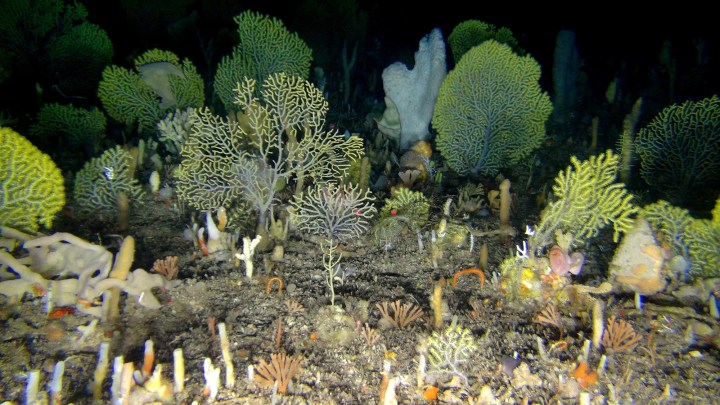
South Africa hosts an abundance of marine species, but there are not enough taxonomists to support the effective management and protection of our rich marine biodiversity.
When marine taxonomists Dr Jannes Landschoff and Emeritus Professor Charles Griffiths first set the target of scientifically documenting the life in False Bay’s kelp forests, they suspected they were being overly ambitious.
Griffiths says, “We thought, is it even possible to find 1,001 species in the Great African Sea Forest? But we quickly realised that it was a very easy target” — a testament to the immense diversity in South Africa’s oceans.
But while South Africa hosts an abundance of marine species, there are not enough taxonomists to support the effective management and protection of our rich marine biodiversity.
Taxonomists — biologists that name and categorise species — are at the core of the biodiversity information crucial for marine spatial planning, fisheries management and the creation of marine protected areas. However, their numbers are dwindling, scientists warn.
South African marine taxonomic knowledge is outdated. An additional complication: many species have been inaccurately identified as European — a relic of past colonial taxonomists labelling organisms with the name of the closest European equivalent.
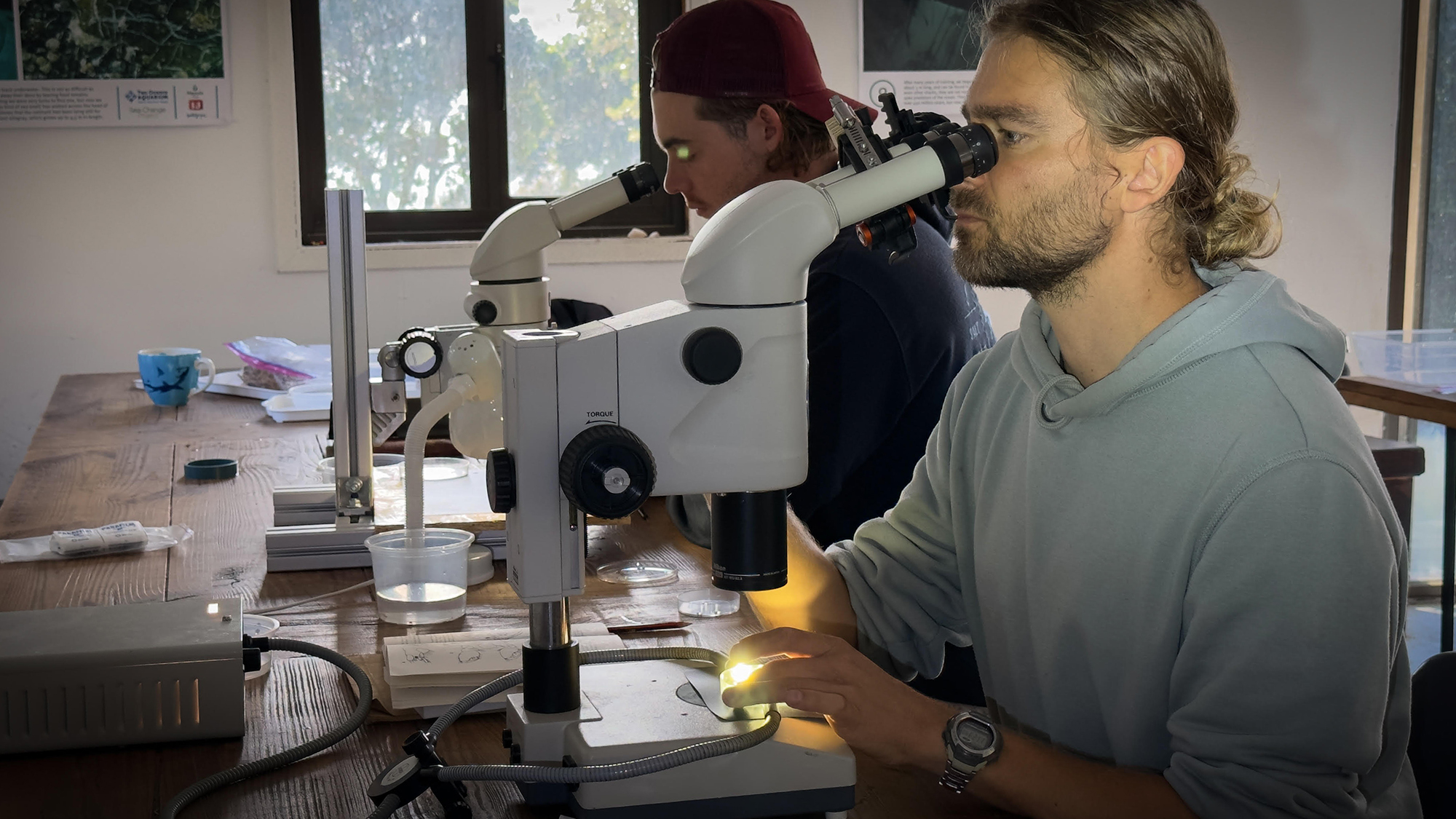
Dr Jannes Landschoff and Stellenbosch University student Jean-Pierre Joubert. (Photo: Craig Foster, Sea Change Project, 1001 Seaforest Species)
Landschoff, the 1001 Seaforest Species project leader and a marine biologist at the Sea Change Project, says this has not been rectified because “there aren’t enough South Africans with taxonomic expertise”. A lack of funding and jobs has led to a decline in the lure of studying the field, and consequently in the number of taxonomists.
“Taxonomy is the critical underpinning for deriving benefits from biodiversity. We can’t benefit from biodiversity if we don’t know what things are,” says Professor Kerry Sink, the marine programme manager at the South African Biodiversity Institute (Sanbi).
Sink believes that the decision-makers managing science budgets are not aware of the importance of the profession and do not acknowledge it with the support it needs.
What is a taxonomist?
Taxonomists classify organisms into categories based on their physical appearance, behaviour and relation to other organisms. With an array of tools, from photography and powerful microscopes to genetic testing, taxonomists are the first step in a process that begins with peering down a microscope and can end with discovering a new species, and possibly new biodiversity legislation.
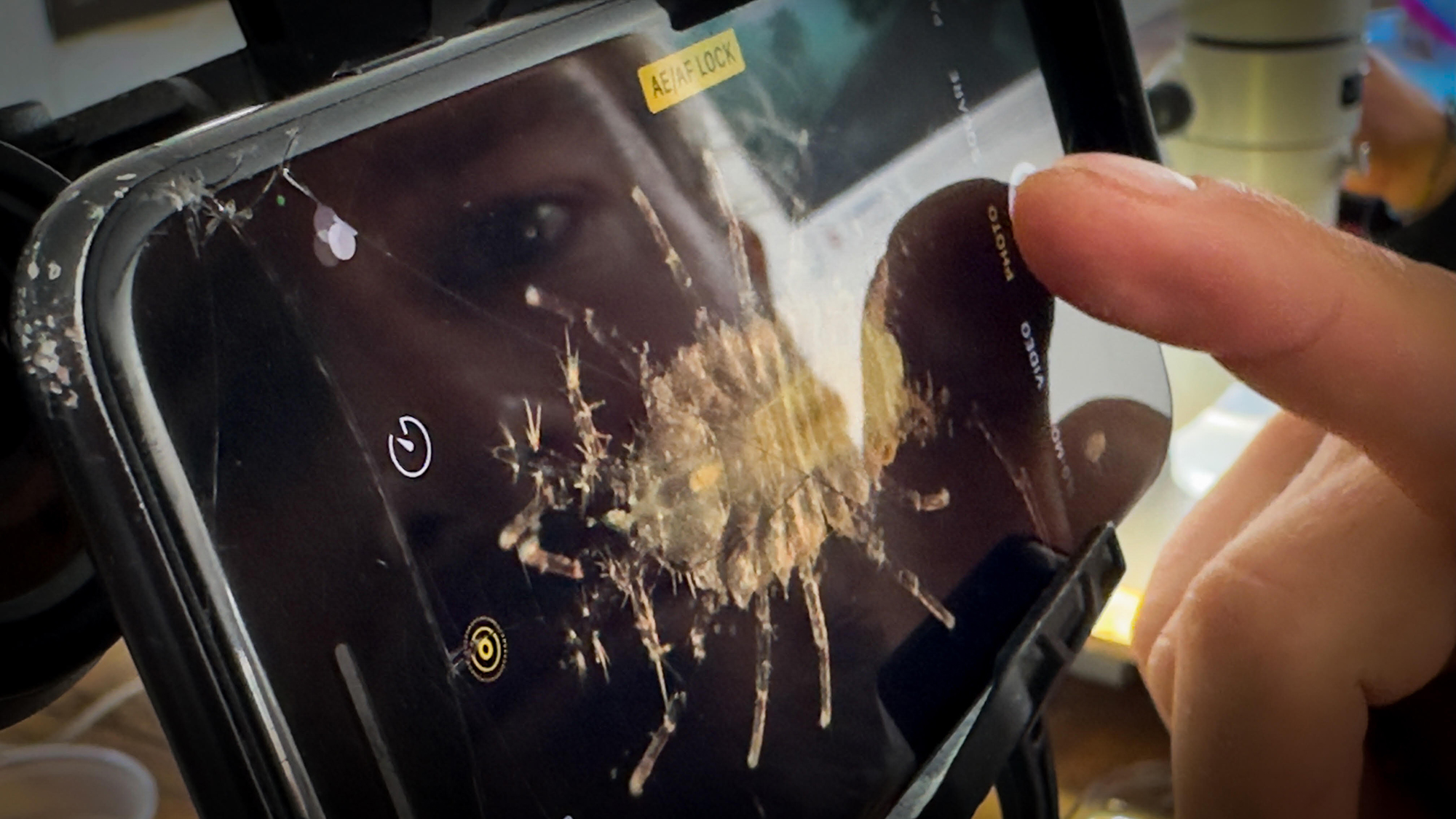
Dr Jannes Landschoff inspects an isopod through the microscope. (Photo: Craig Foster, Sea Change Project, 1001 Seaforest Species)
Identifying a species requires a specific skill set honed over years of study to discern, for example, a unique spot pattern, the hook in a claw, or the variations in genetic code that make two similar species different. But specialised taxonomists are at risk of disappearing from South Africa, at great cost to biodiversity and all who depend on it.
What’s in a name? Making the case for taxonomy
What is the value of telling one sea sponge from another, or discovering a new species of shrimp? Taxonomy is the cornerstone of biodiversity knowledge. If we know what something is, we can figure out what role it plays in its ecosystem, how many of them there are and map where they occur.
These maps are the basis upon which South Africa’s marine spatial planning is built, including where commercial harvesting is permitted and how marine protected areas are designed.
“Everything we do in the marine world is informed by maps, and taxonomy is the foundational knowledge that underpins them,” says Dr Lara Atkinson, an offshore marine scientist at the South African Environmental Observation Network (Saeon). “You really need the taxonomic details correct to make the right decisions at the higher level,” she says.
“I rely heavily on the products of taxonomists,” says Luther Adams, a marine scientist at Sanbi. Adams uses taxonomists’ work to identify species from underwater imagery, which supports marine ecosystem mapping.
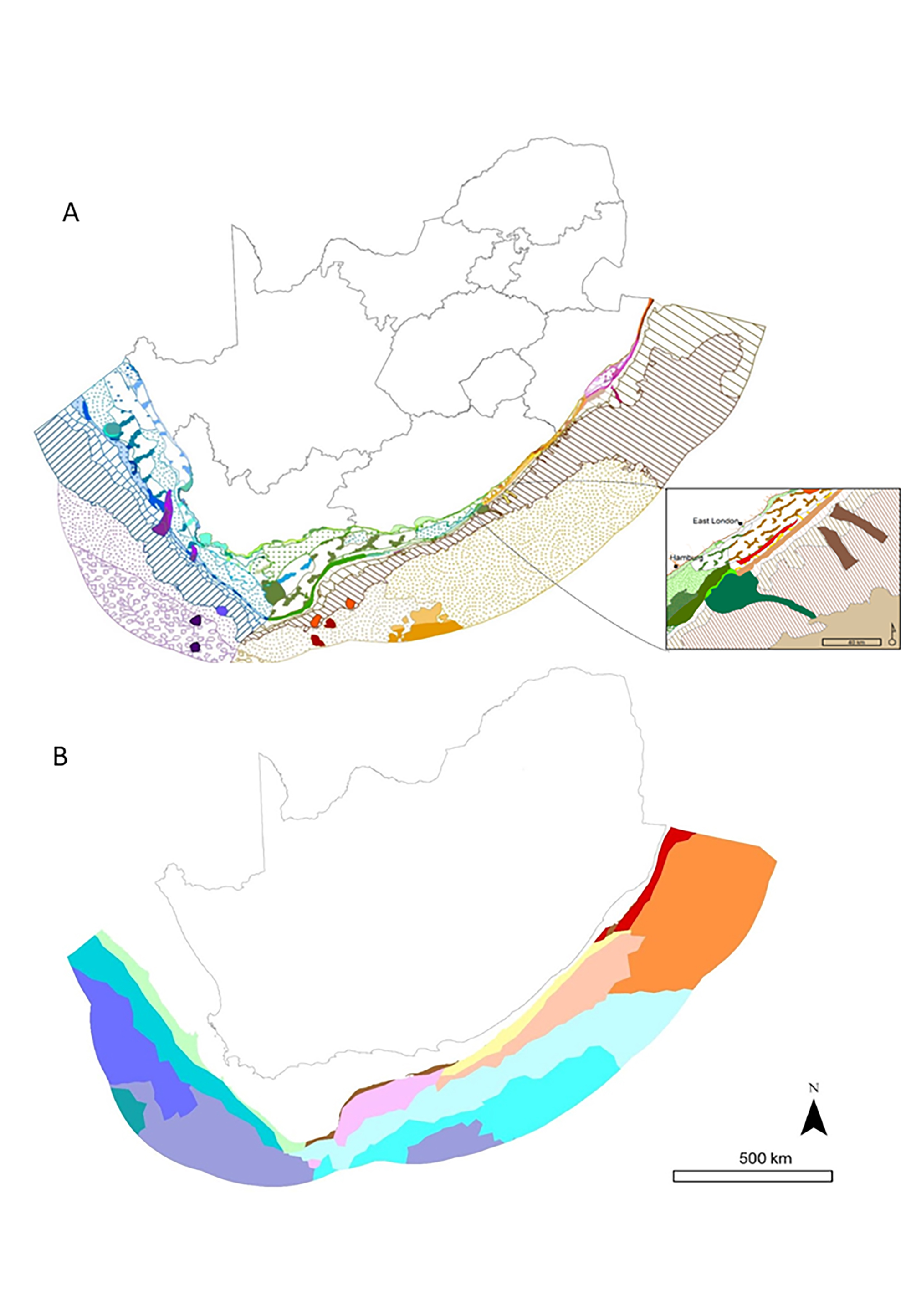
Map of the 163 marine ecosystem types in South Africa. (Image: Sink et al. 2023)
Knowing the difference between species can directly affect the economy. In the past, shallow- and deep-water hake, popular seafood fishes, were not recognised as two distinct species. Taxonomists realised they were separate and occupied different depths, resulting in a revision of fishing protocols.
“We used to fish them as if they were the same species, but they need to be managed separately,” says Griffiths. With this knowledge, an industry that accounts for more than half the value of South Africa’s commercial fisheries and provides jobs to more than 8,000 people is now more sustainable.
Taxonomy also affects the healthcare industry. The discovery of new marine organisms can unlock a treasure trove of novel bioactive compounds to treat disease.
Bioactive compounds produced by bryozoans (aquatic invertebrates also known as “moss animals”), are currently undergoing clinical trials as treatments for Alzheimer’s, HIV/Aids and cancers, says Dr Melissa Boonzaaier-Davids, the only active bryozoan taxonomist in Africa.
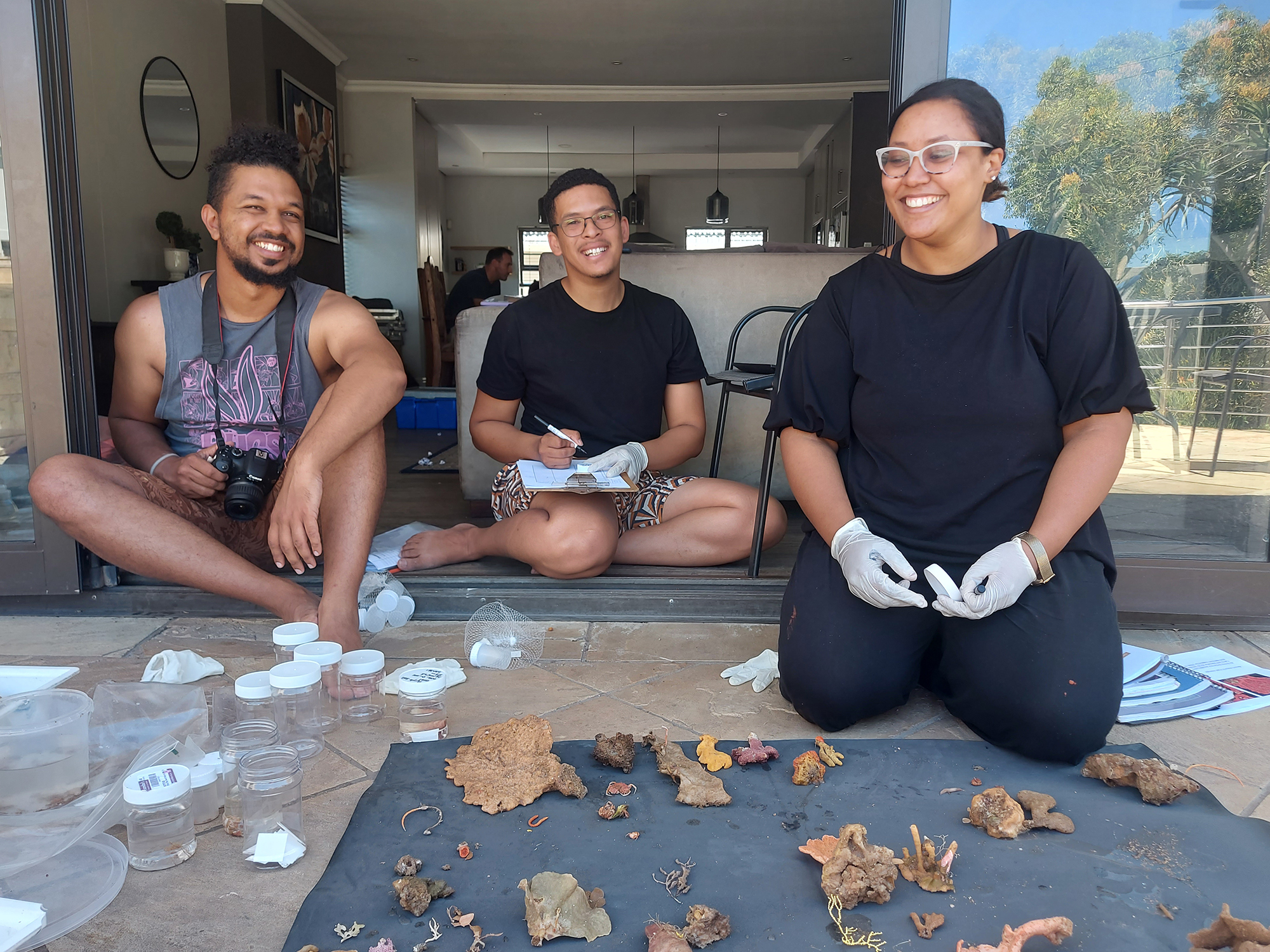
A team processing SeaMap samples. (Photo: Kerry Sink)
Previously an assistant curator at Cape Town’s Iziko South African Museum, Boonzaaier-Davids worked to fill gaps in biodiversity knowledge through taxonomic study.
“South Africa has so many unrecorded specimens that could be useful to medical research… but we need taxonomy to figure out which hold medicinal potential,” she says.
Each species is unique and many fill crucial roles that ensure ecosystems continue to function. For example, “marine invertebrates filter the oceans and recycle carbon, and have for millions of years,” says Boonzaaier-Davids, who, after her temporary contract at the museum ended, now works as an abalone scientist at the Department of Forestry, Fisheries and the Environment.
By expanding biodiversity knowledge, taxonomy enables the creation of marine protected areas that support more biodiverse ecosystems, which are more resilient to threats like climate change.
Why are South Africa’s marine taxonomists disappearing?
Marine taxonomy in South Africa is a field of firsts and onlys — many taxonomists are the sole expert on the continent on a specific species group, and frequently discover species new to science.
With so few in the field, there are few to take up the mantle when taxonomists retire. “If I don’t train the next generation of South Africans, marine taxonomy is going to die out,” says Griffiths, who continues to teach in his retirement.
“I don’t know when I last saw a position advertised for a taxonomist in South Africa,” says Atkinson. “Our decision-makers need to be made aware of the importance of creating those posts.” This job shortage is a major deterrent for young would-be taxonomists when choosing their study field.
Inadequate funding and a scarcity of permanent positions for taxonomists are fuelled by a lack of recognition. “Our decision-makers and those in charge of science budgets haven’t been made aware of the importance of taxonomy, so they don’t understand it. If they did, we wouldn’t be in this situation” says Sink.
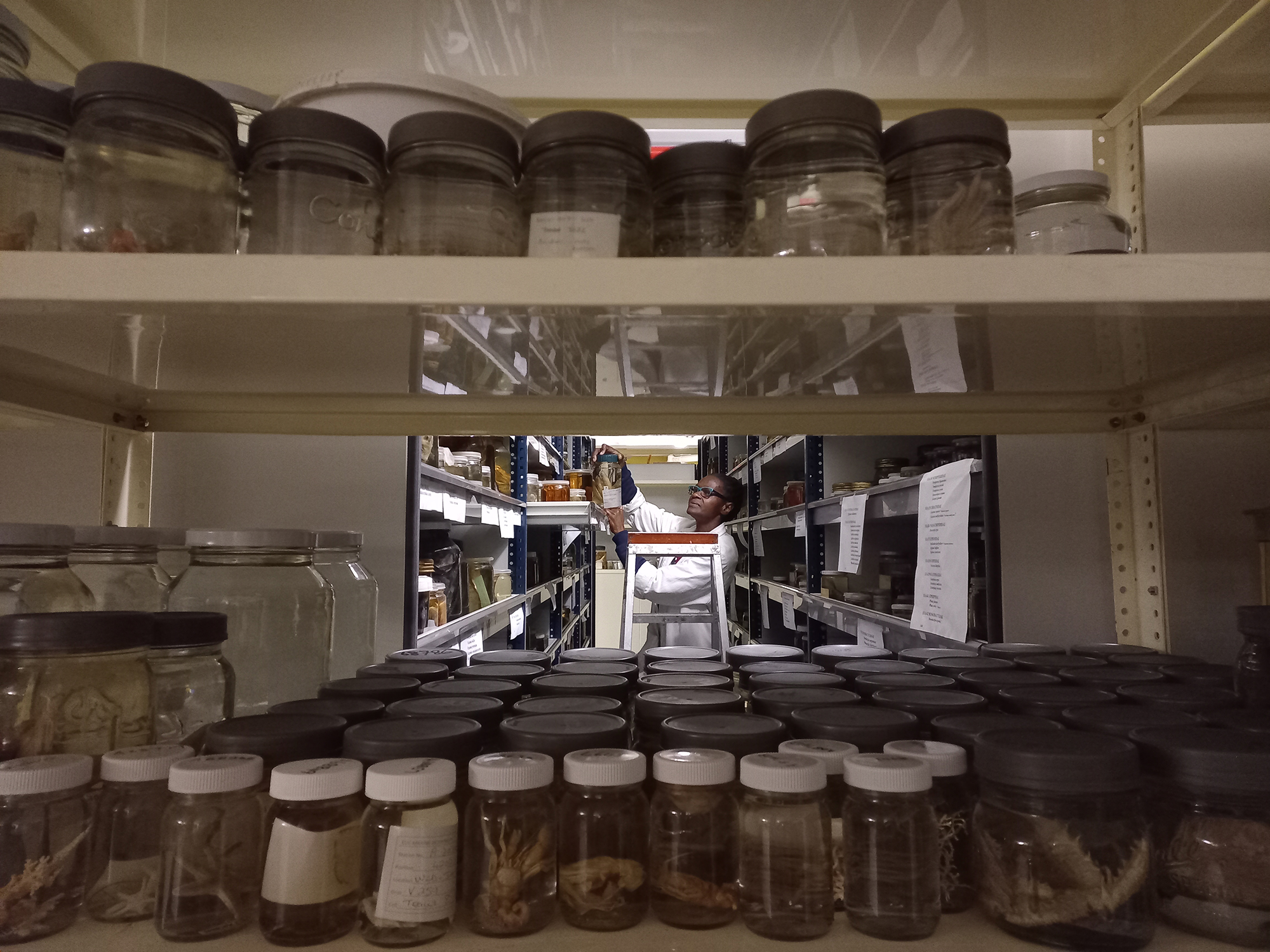
Ms Feziwe Albert, assistant collection manager for Marine Biology, sorts through the specimen collection at the Iziko South African Museum. (Photo: Tatjana Baleta)
Taxonomist roles are traditionally housed in museums, but science museums like the Iziko South African Museum of Natural History are currently governed by the Department of Sport, Arts and Culture. “Our museums need to be recognised as scientific assets,” says Sink.
Museums are a taxonomist’s Mecca — a record of biodiversity in the form of specimens stored in glass jars and tissue-lined boxes. These must be carefully labelled, categorised and preserved to remain useful to science. The Iziko South African Museum holds more than 129,000 specimens in its marine invertebrate collection alone. All depend on the curatorship of a few taxonomists working at the museum.
“The departments of Science and Innovation, combined with Arts and Culture should come together to carve out a niche for taxonomists to be placed and funded — right now they’re falling through the gap,” says Atkinson. Comment from the Department of Science and Innovation was unavailable at the time of publication.
Getting taxonomists on the radar
In response to the growing taxonomist shortage, researchers have created initiatives to raise awareness about the field’s importance and attract new students.
A recent One Ocean Hub Research Cruise, led by Adams, focused on building skills for emerging researchers at sea; the SeaMap project aims to support South Africa’s first data-driven marine ecosystem map, offering opportunities to students and developing taxonomy teaching materials for high school students; and 1001 Seaforest Species seeks to inspire the protection of the species it showcases.
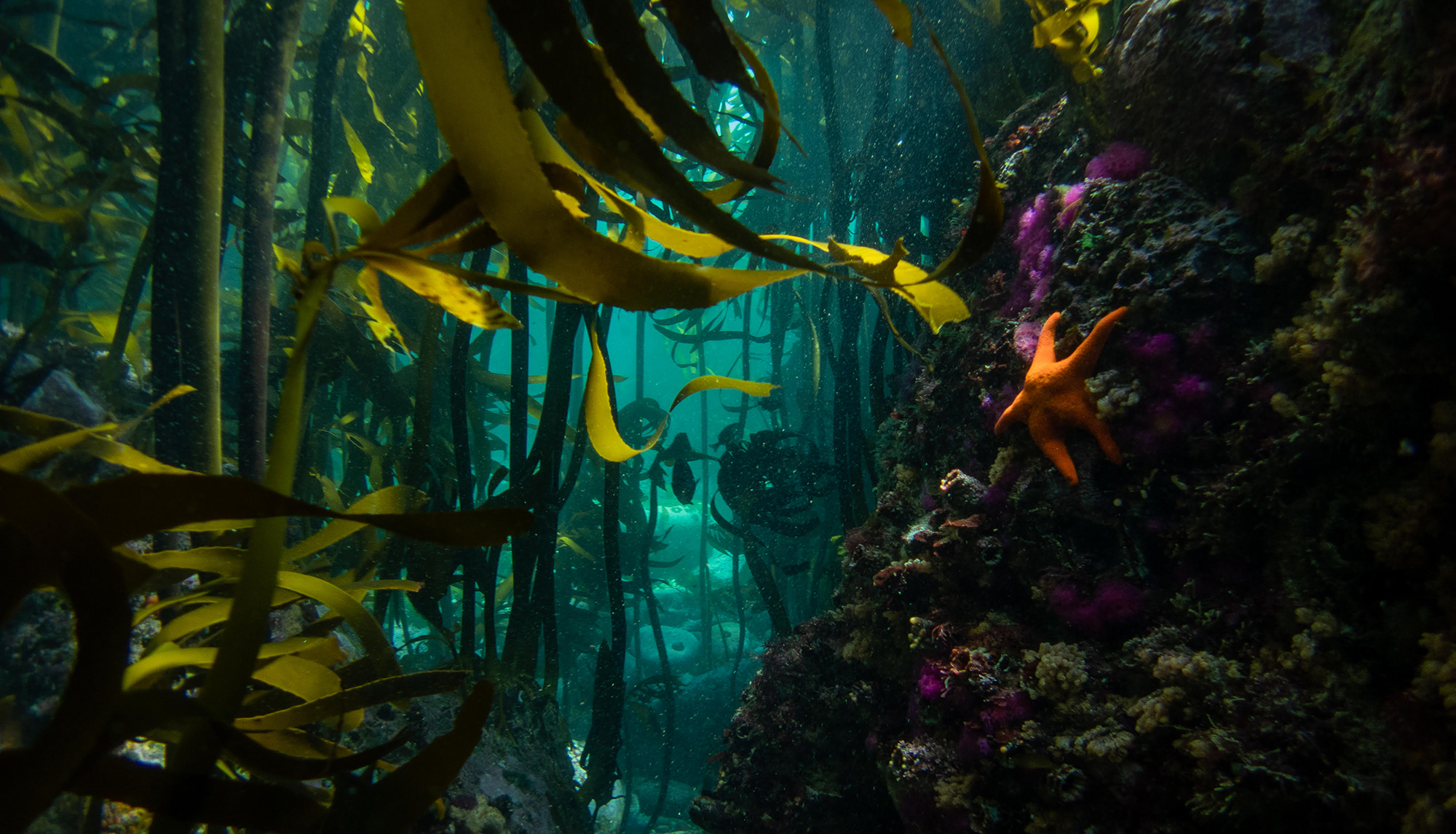
Kelp forest biodiversity. (Photo: Jannes Landschoff, Sea Change Project, 1001 Seaforest Species)
With so much of South Africa’s biodiversity remaining undescribed, there’s immense opportunity for young taxonomists to contribute to our understanding of the country’s natural heritage. From the kelp forests of the coast to the decks of deep-sea research vessels to the specimen shelves of museums, there’s important work to be done.
But high-level support for this work remains critical. “It’s time decision-makers know that South Africa’s marine taxonomist shortage is at breaking point,” says Atkinson. “If we don’t prioritise funding for these jobs now, it will be too late to salvage taxonomy, a national asset.” DM
Tatjana Baleta is a conservation and environmental researcher, science communicator and science writer.











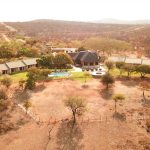









 Become an Insider
Become an Insider
Comments - Please login in order to comment.